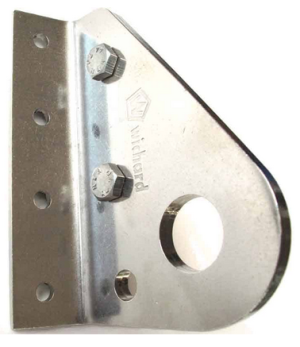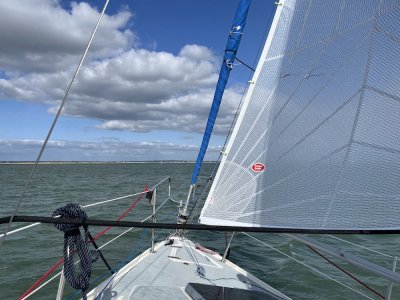DJE
Well-Known Member
Yes. Mine's about a foot or two below the main forestay attachment on a masthead rig. No running backstays or check stays. You also need to make sure that the deck attachment point is strong enough. Mine has a fitting on the underside of the deck through bolted to the one above. This lower fitting is then tied down to the hull with a short wire stay and a rigging screw.Seems to be a property of how close the attachment point is to the top, no?


